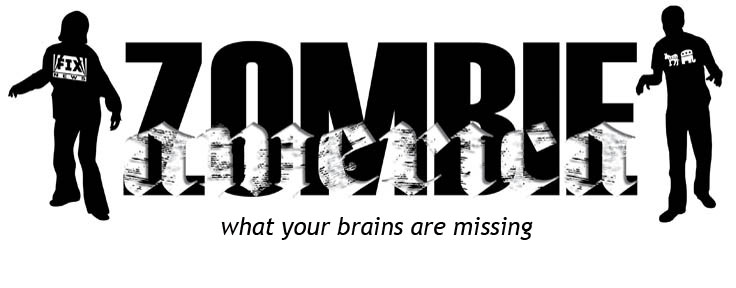Doublethink is the act of simultaneously accepting as correct two mutually contradictory beliefs. It is related to, but distinct from, hypocrisy and neutrality.
Doublethink is an integral concept of George Orwell's dystopian novel Nineteen Eighty-Four.
According to the novel, doublethink is:“The power of holding two contradictory beliefs in one's mind simultaneously, and accepting both of them....To tell deliberate lies while genuinely believing in them, to forget any fact that has become inconvenient, and then, when it becomes necessary again, to draw it back from oblivion for just so long as it is needed, to deny the existence of objective reality and all the while to take account of the reality which one denies — all this is indispensably necessary. Even in using the word doublethink it is necessary to exercise doublethink. For by using the word one admits that one is tampering with reality; by a fresh act of doublethink one erases this knowledge; and so on indefinitely, with the lie always one leap ahead of the truth.”
Orwell explains that the Party could not protect its iron power without degrading its people with constant propaganda. Yet, knowledge of this brutal deception, even within the Inner Party itself, could lead to disgusted collapse of the State from within. For this reason, the government uses a complex system of reality control. Though Nineteen Eighty-Four is most famous for the Party's pervasive surveillance of everyday life, reality control means that the population of Oceania — all of it, including the ruling élite — could be controlled and manipulated merely through the alteration of everyday thought and language. Newspeak is the method for controlling thought through language; doublethink is the method of directly controlling thought.
Newspeak incorporated doublethink, as it contains many words that create assumed associations, between contradictory meanings, especially true of fundamentally important words, such as good and evil; right and wrong; truth and falsehood; justice and injustice.
Doublethink is a form of trained, willful intellectual blindness to contradictions in a belief system. Doublethink differs from ordinary hypocrisy in that the "doublethinking" person deliberately had to forget the contradiction between his two opposing beliefs — and then deliberately forget that he had forgotten the contradiction. He then had to forget the forgetting of the forgetting, and so on; this intentional forgetting, once begun, continues indefinitely. In the novel's notes, Orwell describes it as "controlled insanity".
In the case of workers at the Records Department in the Ministry of Truth, doublethink means being able to falsify public records, and then believe in the new history that they, themselves, had just written. As revealed in Goldstein's Book, the Ministry's name is itself an example of doublethink: the Ministry of Truth is really concerned with lies.
Moreover, doublethink's self-deception allows the Party to maintain huge goals and realistic expectations: If one is to rule, and to continue ruling, one must be able to dislocate the sense of reality. For the secret of rulership is to combine a belief in one's own infallibility with the power to learn from past mistakes. Thus, each Party member could be a credulous pawn, but would never lack relevant information. The Party is both fanatical and well-informed, thus unlikely either to "ossify" or "grow soft" and collapse. Doublethink would avoid a "killing the messenger" attitude that could disturb the Command structure. Thus, doublethink is the key tool of self-discipline for the Party, complementing the state-imposed discipline of propaganda, and the police state. Together, these tools hid the government's evil not just from the people, but from the government itself, but without the confusion and misinformation associated with primitive totalitarian regimes.
Doublethink is critical in allowing the Party to know what its true goals are without recoiling from them, avoiding the conflation of a regime's egalitarian propaganda with its true purpose.
Since Nineteen Eighty-Four was published in 1949, the word doublethink became synonymous with relieving cognitive dissonance by ignoring the contradiction between two world views - or even of deliberately seeking cognitive dissonance. Some schools of psychotherapy, such as cognitive therapy, encourage people to alter their own thoughts as a way of treating different psychological maladies, (see cognitive distortions).
Source
skip to main |
skip to sidebar
Table of Contents
- Bohemian Grove (1)
- Brainwashing (1)
- Cognitive Dissonance (1)
- COINTELPRO (1)
- Conspiracy Theory (1)
- Council on Foreign Relations (1)
- Dialectic (1)
- Disinformation (1)
- Divide and Conquer (1)
- Doublespeak (1)
- Doublethink (1)
- Esoteric (1)
- Eugenics (1)
- Exoteric (1)
- False Flag (1)
- Federal Reserve Bank (1)
- Free (Freedom) (1)
- Georgia Guidestones (1)
- Groupthink (1)
- Ignoratio Elenchi (1)
- Insurrection Act (1)
- Mind Control (1)
- Nano-Thermite (1)
- New World Order (1)
- Patriot (1)
- Plutocracy (1)
- Posse Comitatus Act (1)
- Problem Reaction Solution (1)
- Project For a New American Century (PNAC) (1)
- Propaganda (1)
- Provocateur (1)
- Psychological Operations (PSYOP) (1)
- RAND (1)
- Skull and Bones (1)
- Stockholm Syndrome (1)
- Straw Man (1)
- Terrorist (1)
- The Art of War (Sun Tzu) (1)
- The Great Game (1)
- Topics Defined (1)
- Trilateral Commission (1)
- Tyranny (1)
- World Government (1)

.jpg)
